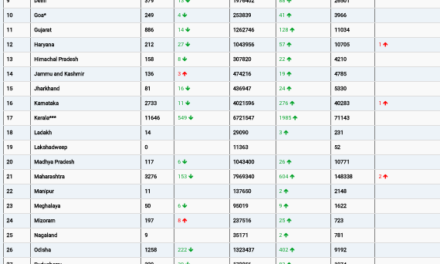Inflammatory bowel disease (IBD) is witnessing a significant surge in India, driven by a combination of genetic predispositions, environmental factors, and immune responses, according to health experts. This announcement coincides with World IBD Day, observed annually on May 19. This year’s theme, “IBD Has No Borders,” emphasizes the global nature of the disease.
IBD encompasses several conditions, primarily Crohn’s disease, which affects the small intestine, and ulcerative colitis, which impacts the large intestine. Indeterminate colitis and microscopic colitis, diagnosed via biopsy, also fall under this category.
“Individuals genetically predisposed to IBD inherit susceptibility from their parents,” explained Dr. Mahesh Kumar Gupta, Senior Consultant in Gastroenterology at Marengo Asia Hospital, Gurugram. “The gut environment, particularly the balance of bacteria, plays a crucial role. Typically, a healthy gut contains 60-70% good bacteria and 30-40% bad bacteria. Disruption in this balance, often due to poor dietary habits, lack of sleep, or excessive consumption of junk food and preservatives, can trigger inflammation. The immune system’s interaction with genetic and bacterial factors further contributes to the intestinal ulcerations seen in IBD.”
Common symptoms of IBD include bloody diarrhea, weight loss, fever, fatigue, abdominal pain, anemia, joint pain, and skin problems.
A 2023 study published in The Lancet highlighted the link between rising urbanization and increased intake of ultra-processed foods with the surge of IBD among young adults and adolescents in India. Research conducted by AIG Hospitals in Hyderabad revealed that approximately 1.5 million people in India suffer from IBD. However, the actual numbers might be higher due to a lack of comprehensive data.
Anukalp Prakash, Lead Consultant in Gastroenterology at CK Birla Hospital, Gurugram, noted an increase in pediatric cases of IBD. “While the exact cause is unknown, genetics likely play a significant role,” she said. “Alteration in immunity is critical in the occurrence of IBD. People with a family history of the disease are more vulnerable because it is both a genetic and autoimmune condition.”
The Lancet study also pointed to C-section deliveries, which deprive the child of essential gut microflora, lack of breastfeeding, and excessive use of antibiotics as risk factors for IBD.
Health experts emphasize the importance of maintaining a healthy diet rich in fiber, staying hydrated, and avoiding preservatives to manage and prevent IBD. As the incidence of IBD continues to rise, awareness and early intervention remain key in managing this chronic condition.












